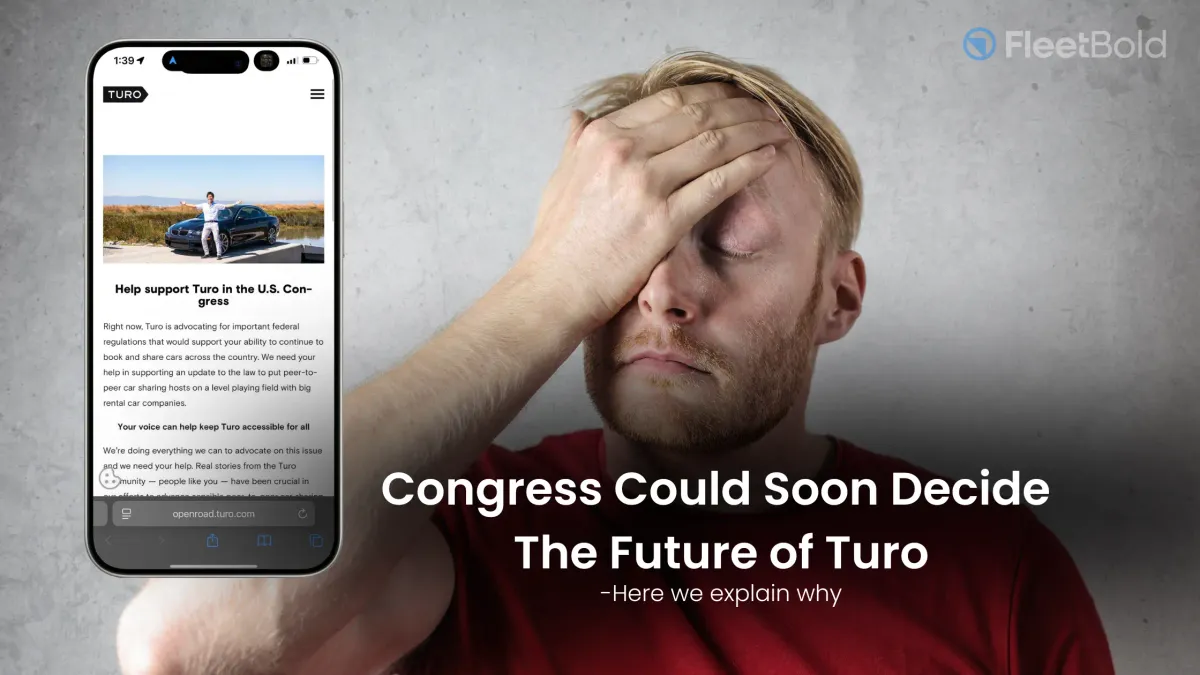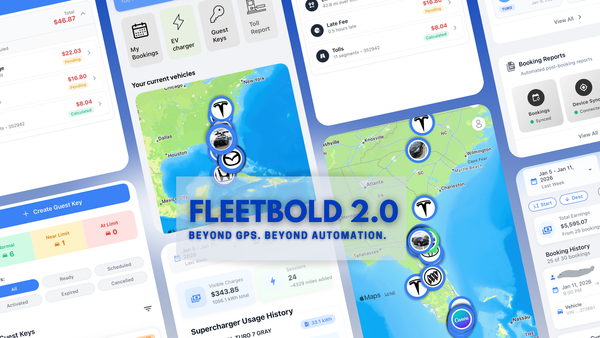Why Congress Could Soon Decide the Future of Turo Hosts
Congress is being asked to set clear national rules for peer to peer car sharing. This explainer breaks down what is happening, why it matters for hosts, and how a federal fix could change day to day operations.

Turo is publicly asking Congress to modernize federal rules so peer to peer car sharing has consistent treatment across the country. The company’s OpenRoad campaign frames the ask as fairness with traditional rental car models, covering insurance, taxes, and airport access.
What changed and why this matters now
In many states, hosts operate under a patchwork of rules. Some states have passed clear peer to peer statutes. Others rely on older rental car frameworks that do not fit how platforms work. That patchwork creates real costs for hosts who operate across state lines and even within a single metro with multiple airports and local taxes. Turo is now seeking a federal baseline that keeps the local flexibility but removes the most extreme outliers.
A flashpoint example:
New York requires far higher liability coverage for peer to peer trips than for traditional rentals. Turo says this drives an average liability cost that can reach about 62 dollars per day in New York versus about 4 dollars and 20 cents elsewhere. Industry reporting in Albany confirms the push for a bill to reduce those requirements. Hosts feel this directly in pricing and acceptance rates.
The legal backdrop in plain English
The Graves Amendment
Federal law called the Graves Amendment protects rental and leasing companies from being held automatically responsible for a driver’s negligence based only on ownership of the vehicle. Courts have repeatedly upheld this preemption of state vicarious liability rules for the traditional rental model. The key Eleventh Circuit ruling in Garcia v Vanguard found state vicarious liability claims preempted. The question is whether and how that protection fully applies to peer to peer hosts and platforms. Right now that is not settled uniformly.
How states already limit owner liability
Even without federal preemption, many states do not impose automatic owner liability. Texas is a simple example. Courts there recognize negligent entrustment, which means an owner can be liable only if they were themselves negligent in entrusting the vehicle, for example to an unlicensed or reckless driver. That is different from automatic liability based only on ownership.
What this means for hosts
A federal clarification that places peer to peer within a Graves-like shield would not protect negligent behavior. It would simply prevent liability based only on ownership while keeping claims for negligent entrustment or other fault available when warranted.
Airports and fair access
Airports are another source of inconsistency. Many now create permits and fee structures for peer to peer exchanges, while others restrict curbside or garage handoffs. A current example is St Louis Lambert where officials approved a permit with revenue share and rules about where exchanges can occur. This shows the direction large airports are moving and why a federal floor that recognizes platform operations can make compliance simpler for hosts.
Taxes are shifting too
States continue to update tax treatment for platform transactions. Alaska recently enacted a law that requires platforms to collect and remit the state rental tax on behalf of owners and sets distinct rates, nine percent for traditional rentals and seven percent for peer to peer, resolving years of uncertainty. For a host, that means fewer administrative headaches and clearer pricing.
What a federal framework could include
- Insurance parity
Set national minimums for third party liability on peer to peer trips in line with traditional rentals. This would prevent outlier burdens like the New York situation and enable more predictable pricing for hosts and guests. The New York numbers are the strongest proof that parity is needed. - Clear owner liability rules
Clarify that hosts using qualified platforms are not automatically liable solely because they own the car during a trip. Keep negligent entrustment and other fault-based claims available when owners themselves are careless. This mirrors how Graves functions for traditional rentals.Airport and tax guidance
Encourage airports to use standard permits and drop-off rules for platform exchanges and affirm that platforms should collect and remit applicable trip taxes. The recent Alaska update and the Lambert permit show workable models.
Day to day impacts for hosts
Pricing and availability
If liability minimums normalize, insurance load baked into each trip can drop in outlier markets. That can allow more competitive pricing, better acceptance, and fewer declined bookings due to high fees. The New York figures illustrate the gap.
Multi-state operations
A host who adds a second car in a neighboring state or expands to an airport across the river should not have to relearn a new rulebook. A federal baseline would let you keep the same playbook while still following local details like permit zones or pickup locations the way Lambert set them.
Claims certainty
With a clearer federal shield similar to Graves, you should see fewer lawsuits that try to attach liability to owners who did nothing negligent. That helps carriers price policies more predictably and helps platforms design consistent protection plans.
Common concerns and honest answers
Will accident victims be worse off
No. A federal floor would still require liability coverage. Traditional rental standards remain a reference point, and negligence claims continue to exist for unsafe entrustment or other wrongful acts.
Will platform protection plans change
Protection tiers may be adjusted market by market as regulatory risk stabilizes. Today Turo offers plans that include third party liability up to significant limits along with damage handling above the selected deductible. Clearer law usually leads to steadier pricing.
Does this remove all state rules
No. States can still manage matters like consumer disclosures, safety recall compliance, and tax remittance. Arizona’s framework is an example of a state approach that can coexist with federal baselines.
Real world examples
Example one
A host in a large metro uses two airports. Airport A already has a permit scheme for platform exchanges in designated lots. Airport B has been debating access for years. A federal nudge toward standardized permits can push Airport B to adopt a clear policy similar to Airport A. The Lambert decision shows that airports are already moving in this direction.
Example two
A New York City host wants to keep prices competitive with nearby states. The current liability mandate forces a higher daily cost baked into every trip. If New York law changes or a federal floor preempts the extreme gap, the host can price closer to peers in New Jersey and Connecticut and the platform can reduce cart abandonment. The legislative coverage from Albany outlines the stakes.
Example three
A small operator with cars in Arizona and Alaska needs to file different taxes. With Alaska now requiring platform collection of the state rental tax, administrative work falls on the platform rather than the owner. That improves compliance and reduces errors.
What to watch next
- New York’s liability debate and any bill language that narrows the gap with traditional rentals.
- More airport agreements that formalize platform access using permit and revenue share models similar to Lambert.
- Federal activity around clarifying owner liability and setting consistent insurance floors for peer to peer transactions, the core of Turo’s OpenRoad push.
How hosts can participate
Share your experience with policymakers through Turo’s advocacy hub. Specific stories about pricing impacts, airport logistics, and insurance burdens are the most persuasive. The OpenRoad pages include contact tools and issue summaries that make outreach simple.
Conclusion
Peer to peer car sharing matured fast while laws lagged behind. The result is a patchwork that sometimes treats a single host like a national rental company and sometimes like a neighbor helping a traveler. Congress can resolve the most painful inconsistencies by setting a fair floor for insurance and liability and by encouraging standard airport and tax processes. The goal is simple. Keep strong consumer protection and road safety while removing rules that make hosting unworkable in certain places. Hosts should pay attention now because the decisions made in the next few months can shape pricing, access, and risk for years.
FAQ
What is the Graves Amendment in one sentence
A federal statute that prevents states from imposing automatic owner liability on rental and leasing companies based only on ownership, while leaving negligence based claims and state insurance requirements intact.
Does Graves already protect individual hosts
Courts have clearly applied it to traditional rental companies. Whether and how it fully applies to peer to peer hosts is not uniform yet, which is why a federal clarification would help.
What exactly is Turo asking Congress to do
Support federal updates that create parity between peer to peer sharing and traditional rentals on insurance, taxes, and airport access, and clarify liability treatment for hosts on qualified platforms.
What changed in Alaska and why should I care
Platforms must collect state rental tax and remit it, with a seven percent rate on platform rentals and nine percent for traditional companies. That means clearer rules and less tax admin for owners.
What happened at St Louis Lambert
The airport approved a one year permit that allows Turo operations with revenue sharing and location rules for exchanges. Expect more airports to adopt similar models.
What do I do today
Stay informed on your state rules. If you operate in an outlier market like New York, watch the liability debate and consider how price changes might affect demand. Share your story with lawmakers through the OpenRoad tools.






